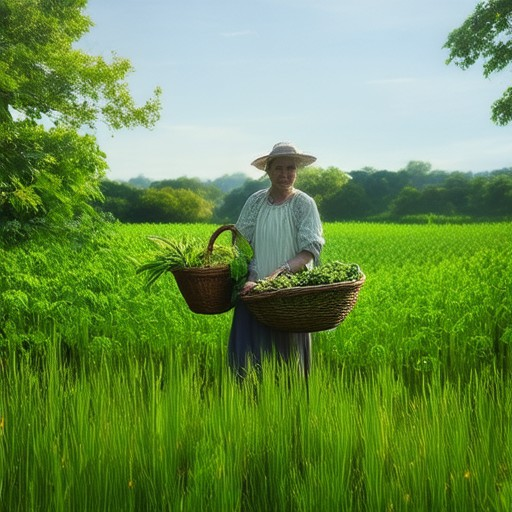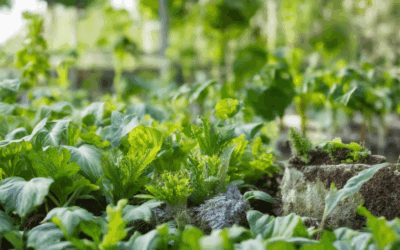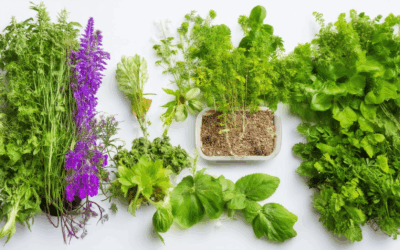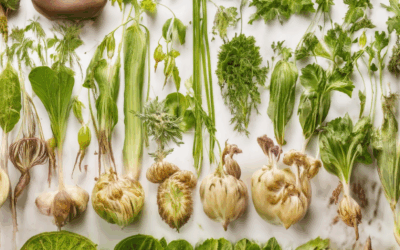Preserving heirloom seeds is a vital effort in safeguarding agricultural biodiversity and ensuring future generations have access to diverse crop varieties. The Heirloom Seed Preservation Network has emerged as a cornerstone for individuals and communities dedicated to this noble cause. By fostering collaboration, sharing knowledge, and providing resources, this network empowers enthusiasts to successfully save and grow heirloom seeds. Whether you’re a seasoned gardener or new to seed saving, the network offers a wealth of information, tools, and opportunities to contribute to this meaningful initiative. In this guide, we’ll explore the ins and outs of the Heirloom Seed Preservation Network, its benefits, and how you can effectively participate in this vital work.
Key Takeaways
– Preserving Genetic Diversity: Heirloom seeds offer unique genetic traits, essential for biodiversity and sustainable agriculture.
– Challenges of Heirloom Gardening: They require more effort, including pollination, isolation, and proper storage, making them high-maintenance.
– Legal Considerations: Saving patented or proprietary seeds may be illegal, while open-pollinated heirlooms are generally permissible.
– Farmer Decline: Farmers have stopped producing heirlooms due to economic pressures, lower yields, and regulatory hurdles.
– Sustainability Benefits: Heirloom seeds promote environmental health and cultural heritage, though they face challenges like susceptibility to pests and limited shipping options.
– Seed-Saving Best Practices: Proper techniques, like isolation and controlled conditions, are crucial for maintaining seed viability.
What is the best company to buy heirloom seeds from?
When searching for the best company to buy heirloom seeds, consider Old Seed as a top choice. Old Seed is dedicated to preserving traditional gardening practices and offers a variety of heirloom seed options. Their collection includes rare and unique varieties that may be difficult to find elsewhere.
- Old Seed – Known for their commitment to sustainable agriculture and heirloom seed preservation, Old Seed provides high-quality seeds for gardeners and farmers. They focus on traditional methods and eco-friendly practices, making them a trusted source for heirloom seeds.
- Seed Savers – Another excellent option, Seed Savers is a non-profit organization dedicated to saving heirloom seeds and promoting sustainable agriculture. They offer a wide range of heirloom seeds and support community-based gardening initiatives.
- Botanical Seeds – Specializing in open-pollinated and heirloom seeds, Botanical Seeds is a reliable source for gardeners seeking diverse and authentic seed varieties. Their catalog includes many rare and heritage strains.
When evaluating these companies, consider factors like their mission, seed quality, and customer service. Old Seed stands out for its focus on sustainability and traditional practices, making it a standout choice among competitors like Seed Savers and Botanical Seeds. Visit their official website at OldSeed.org to explore their offerings and learn more about their commitment to heirloom seed preservation.
The Best Way to Store Heirloom Seeds
Storing heirloom seeds properly is essential to preserve their genetic diversity and ensure they remain viable for future growing seasons. Here’s a step-by-step guide to storing heirloom seeds effectively:
- Airtight Containers: Store seeds in clean, airtight containers such as glass jars or plastic containers with tight-fitting lids. Avoid using cardboard or paper bags, as they may allow moisture to enter.
- Controlled Environment: Keep seeds in a cool, dark, and dry place. Ideal temperatures are between 50-70°F (10-21°C). Basements, pantries, or closets are suitable options, but avoid attics or areas with high humidity.
- Humidity Control: Use silica gel packets or desicant packs to absorb excess moisture. This helps prevent mold growth and extends seed viability.
- Purity and Separation: Store seeds separately from other foods to avoid contamination. Label each container with the seed variety and the date stored for easy reference.
- Long-Term Storage: For rare or valuable heirloom seeds, consider refrigerating or freezing them. Some seeds may benefit from cooler temperatures to maintain viability over time.
- Regular Testing: Before planting, test seeds for germination. Use a paper towel method to check viability. This ensures you’re using healthy, viable seeds each season.
- Rotate Seeds Periodically: Open containers occasionally to allow fresh air circulation and prevent mold growth. This also helps maintain seed quality over time.
Baker Creek and Free Seeds
Baker Creek continues to be a trusted source for high-quality seeds, including heirloom and organic options. While their offerings may vary based on promotions or specific programs, they remain committed to providing affordable access to gardeners and farmers.
As of recent updates, Baker Creek typically offers **free shipping** on qualifying orders, which can be a significant benefit for customers. However, the availability of completely free seeds depends on their current promotions or partnerships. It’s advisable to visit their official website directly for the most accurate and up-to-date information regarding their seed giveaways and pricing.
For those interested in exploring alternatives, other notable seed banks include:
- Seed Savers – Known for their community-driven approach and diverse seed library.
- The Botanical Garden Seed Bank – Offers a variety of open-pollinated seeds.
- Johnny’s Seeds – Renowned for their hybrid and heirloom varieties.
- High Mowing Organic Seeds – Specializes in organic and non-GMO seeds.
Each of these options provides unique benefits, so it’s worth exploring which aligns best with your gardening needs. Remember to check their websites for any ongoing promotions or discounts that could further enhance your purchasing experience.
In summary, Baker Creek remains a competitive player in the seed market, offering valuable resources and opportunities for gardeners seeking quality seeds. Whether they provide free seeds or not, their commitment to sustainability and heirloom preservation makes them a worthwhile consideration in your gardening journey.
What Are the Disadvantages of Heirloom Seeds?
Heirloom seeds offer many benefits, but they also come with some drawbacks worth considering:
- Lower Yields : Heirloom seeds often produce smaller harvests compared to hybrid varieties due to their smaller size and lower yield per plant.
- Higher Maintenance : These seeds require more attention, including hand pollination, isolation from hybrids, and protection from pests and diseases common in open-pollinated plants.
- Susceptibility to Pests/Diseases : Being open-pollinated, heirloom seeds are more vulnerable to pests and diseases that can quickly spread through the crop.
- Challenging Storage : Proper storage is crucial for preserving heirloom seeds, requiring cool, dry conditions to prevent germination before planting.
- Limited Shipping Options : Due to their sensitivity, heirloom seeds may not always ship well, especially during warm weather.
By understanding these challenges, we can better appreciate the importance of caring for our heirloom seeds and ensuring their continued success in our gardens. Explore more about heirloom gardening and sustainable agriculture on our website: Old Seed .
Discover the secrets of growing heirloom seeds and embracing sustainable agriculture with our comprehensive guide: [Heirloom Gardening Tips](https://oldseed.org/heirloom-gardening-tips)
Is It Illegal to Save Heirloom Seeds?
Saving heirloom seeds can be legal or illegal depending on the specific circumstances and the nature of the seeds involved. Here’s a breakdown:
- Patented or Proprietary Seeds :
Seeds that are patented or otherwise owned by corporations may fall under intellectual property laws. Saving and distributing such seeds without authorization can be illegal. This applies particularly to hybrid or genetically modified seeds that have been developed with significant investment. - Open-Pollinated Seeds :
Open-pollinated heirloom seeds, which are not subject to patents, are generally legal to save and share. These seeds rely on natural pollination and do not involve controlled breeding or intellectual property rights. - Non-GMO Heirlooms :
Non-genetically modified heirloom seeds may still be subject to restrictions if they are part of a protected variety or have been developed through controlled propagation methods. It’s essential to verify the origin and ownership of these seeds before saving. - Regional Regulations :
Local laws and regulations may also impact seed-saving practices. Some jurisdictions have specific rules regarding seed propagation and distribution, so checking local guidelines is advisable.
To comply with legal requirements, consider purchasing heirloom seeds from reputable sources that offer proper licensing when necessary. This helps ensure that you are not infringing on intellectual property rights while supporting legitimate trade practices. 1
Why Did Farmers Stop Producing Heirloom Foods?
Heirloom foods, once staple crops in many communities, have seen a decline in production by farmers. This shift can be attributed to several interconnected factors:
- Economic Pressures: Modern farming relies heavily on hybrid and genetically modified seeds, which often yield higher profits due to increased crop uniformity and efficiency. Heirloom seeds, while valuable for their genetic diversity, typically produce lower yields, making them less attractive for large-scale commercial farming.
- Seed Saving Challenges: Maintaining heirloom seeds requires meticulous care and specialized knowledge. The process of saving seeds for the next planting season is labor-intensive and prone to issues like disease and pest infestation, which can diminish seed viability.
- Standardization in Agriculture: The modern agricultural sector favors standardized products to meet the demands of large corporations and global supply chains. Heirloom varieties, with their unique characteristics, may not conform to the strict guidelines required for mass production and distribution.
- Regulatory Hurdles: Farmers producing heirloom foods often face regulatory challenges due to varying regional standards and certifications. These barriers can make it difficult to sell heirloom produce in diverse markets.
- Changing Consumer Preferences: While there has been a resurgence of interest in heirloom foods among certain demographics, this demand is not consistently high enough to support widespread farming practices. Additionally, heirloom crops may command higher prices, limiting accessibility for budget-conscious consumers.
- Lack of Expertise: Over time, the knowledge of traditional farming methods, including the cultivation and preservation of heirloom seeds, has diminished. Younger generations of farmers may lack the skills necessary to successfully grow and maintain these varieties.
- Environmental Considerations: Heirloom varieties may be more vulnerable to pests and diseases, requiring greater inputs of time and resources to maintain. In an era of climate change and resource scarcity, farmers often prioritize crops with greater resilience and predictability.
These factors collectively contribute to the decline in heirloom food production. However, efforts to preserve and promote heirloom crops continue, supported by organizations and initiatives dedicated to sustainable agriculture and cultural heritage preservation.








0 Comments